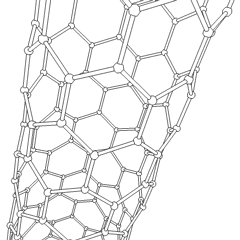
This fuel cell technology could have implications beyond the medical industry
A research team, lead by Dr. Serge Cosner, from Joseph Fourier University of Grenoble has created a Biofuel cell technology that receives its power by converting the naturally occurring glucose and oxygen found in the human body into a viable and continuous energy source. The ‘bionic engine’ will make it possible to extend the functional lifetimes of a range of implants and biomedical devices from sensors and drug delivery devices to entire artificial organs. With existing battery technologies, advanced implants like artificial hearts and kidneys can require replacement power sources as often as every few weeks — a process which requires invasive surgery and carries some risk to patients — and demand large amounts of electricity (similar to the heart without a pulse). Dr Cosner’s Biofuel devices could extend the life of implants indefinitely.
Biofuel cells consist of compressed enzymes and carbon nanotubes that create two electrodes, one that gathers electrons from glucose molecules and one that donates an electron to oxygen and hydrogen atoms, creating water as a byproduct. By connecting the electrodes to a circuit, it creates a current of electrons, which means these cells can be charged by simply drinking a coke or having a candy bar. The longevity of many implants like the pacemaker, which draws a minimal amount of energy, are limited by their electrical life rather than mechanical or structural constraints.
Because devices often only last 5 years, some patients have to undergo 2-3 risky surgeries during their lifetimes to ensure they have a fully-functioning implant. Along with improving patients lives, these developments in sustainable Biofuels enable researchers to focus on developing the next evolution in life extending surgeries, organ replacement and bionic limbs. Dr. Cosner’s team isn’t the only one looking to alleviate patient’s risk and open the door to new possibilities.
Read more . . .
Bookmark this page for “sustainable biofuel” and check back regularly as these articles update on a very frequent basis. The view is set to “news”. Try clicking on “video” and “2” for more articles.







